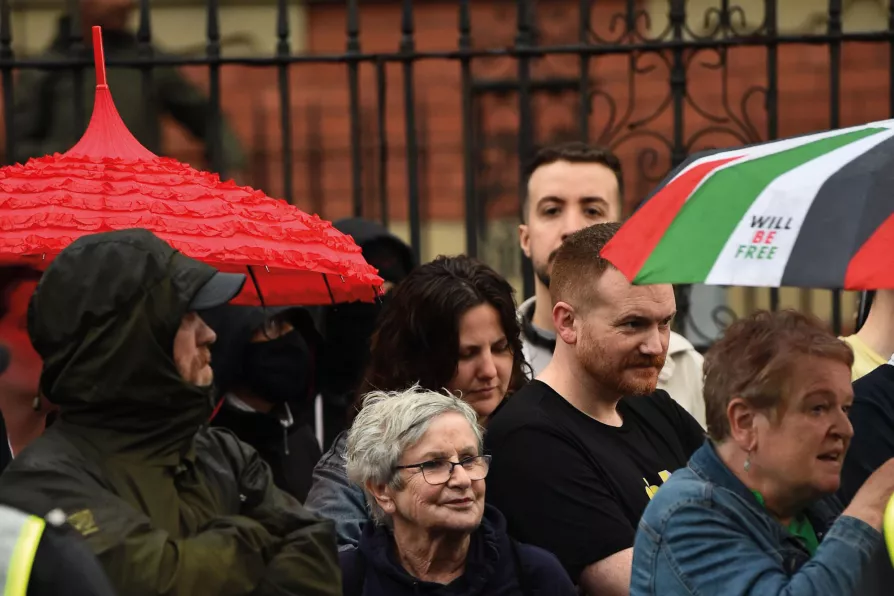The US-Israeli strikes against Iran are part of a decades-long war against the Islamic Republic which has refused to bow to US demands that it surrender its sovereignty, argues VIJAY PRASHAD

 COMMUNITY RESPONSE: Locals defend the Abdullah Quilliam Mosque in Liverpool, following the Southport riot the day before, August 2 2024
COMMUNITY RESPONSE: Locals defend the Abdullah Quilliam Mosque in Liverpool, following the Southport riot the day before, August 2 2024
ANTI-RACISTS and anti-fascists should celebrate the way that tens of thousands have been mobilised over recent weeks. At short notice we stopped the fascists in most towns and cities — but not all. Still, too many hotels housing vulnerable people were attacked, both physically and verbally.
This mobilisation brought together anti-racist groups, trade unionists, people of faith, Palestine activists, those involved in Black Lives Matter and political parties. And while Labour in Parliament told its MPs and lords not to join in — remarkable, but some did, as did many councillors and Labour Party members.
As Migrants Organise stated last week: “Across the country, we are seeing a deeply concerning rise of the far right’s attacks on our people, in our homes and on the streets, organised around racism, Islamophobia, border violence, transphobia and global fascist forces.

May elections will soon be upon us and SABBY DHALU calls for a maximum mobilisation, across Britain, to defeat Reform UK and the right at the ballot box

CLAUDIA WEBBE argues that Labour gains nothing from its adoption of right-wing stances on immigration, and seems instead to be deliberately paving the way for the far right to become an established force in British politics, as it has already in Europe

Listening to our own communities and organising within them holds the key to stopping the advance of Reform UK and other far-right initiatives, posits TONY CONWAY











